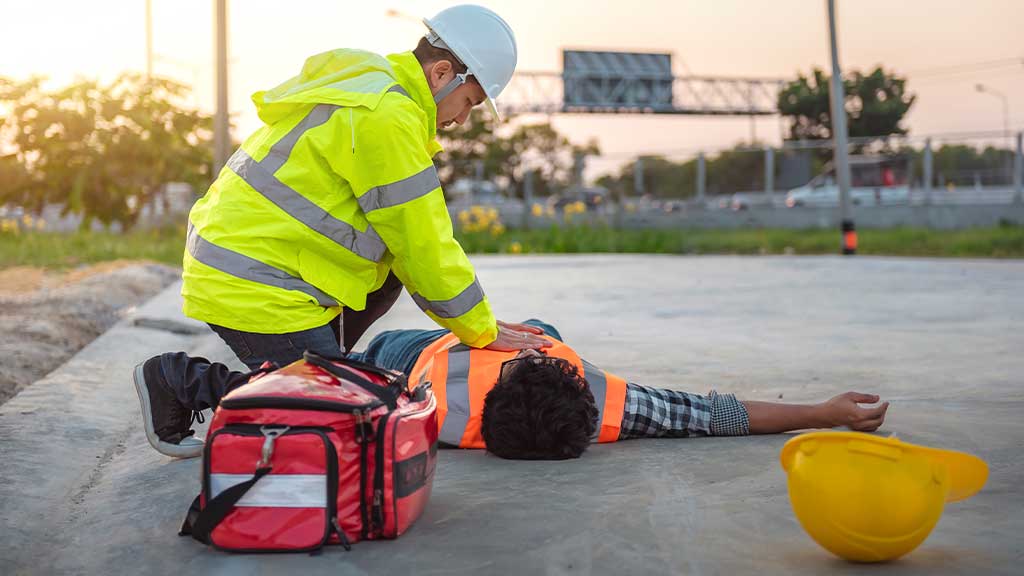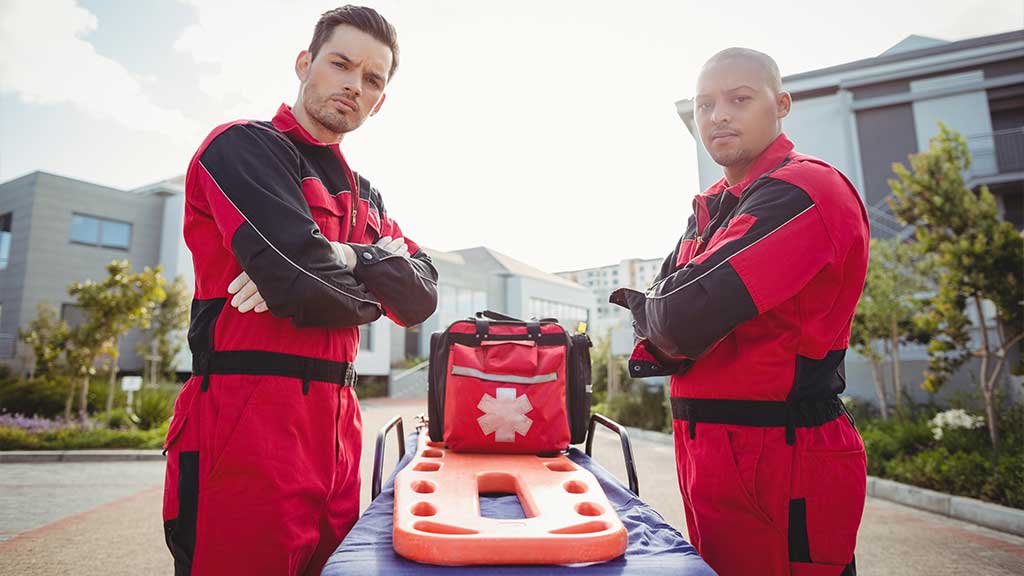Imagine this scenario- You’re in a crowded mall and someone suddenly collapses on the ground, unconscious and not breathing. Or if you’re a caregiver and something similar happens to your patient at home. Do you know what to do in such a situation? The answer is CPR. Questions might also arise regarding how often do you have to renew CPR Certification.
Cardiopulmonary Resuscitation (CPR) is a critical life-saving technique. It can be the difference between life and death in emergencies that involve respiratory failure or cardiac arrest. No matter if you’re a caregiver, a healthcare professional, a parent, a teacher, or just a concerned citizen, CPR is a must-know skill for everyone.
But like most other skills, your proficiency in CPR can diminish with time. Thus, to ensure individuals maintain this ability to perform this life-saving technique in critical situations, the CPR certification must be renewed periodically. But how often do you have to renew CPR certification? Here’s everything you should know-
Why CPR Certification?
Before talking about the intervals at which you should renew CPR certification, let’s take a look at some of the reasons why CPR certification and timely renewals are needed-
Employment Requirement
For many professionals, including healthcare workers, caregivers, teachers, and lifeguards, CPR certification is generally a job requirement. If you don’t renew the certificate, it can jeopardize your employment.
Legal Protection
If you perform CPR on someone in an emergency situation, your certification can provide you with legal protection. There are Good Samaritan laws in many states that can protect individuals with CPR certification from any liability that might arise when assisting in an emergency.
Life-Saving Skill
Needless to say, CPR is a life-saving skill that can assist in keeping the oxygen flowing to vital organs until professional medical help arrives. A CPR certification and its regular renewal will mean that you’re equipped with the skills and knowledge to perform CPR correctly.
Higher Survival Rates

Multiple studies have proven that immediate CPR in case of cardiac arrest can double or even triple the person’s chance of survival. Every minute that passes without CPR significantly reduces the chances of survival, making a quick and effective response very crucial.
How Often Do You Have to Renew CPR Certification?
Before you start searching for “CPR renewal near me,” it is important to understand the factors that impact renewal frequency. Take a look-
1. Certifying Authority
In the US, there are various organizations that offer CPR certification. Some of the top names are the AHA (American Heart Association), ASHI (American Safety and Health Institute), and the American Red Cross. For instance, the American Heart Association CPR certificate renewal frequency is two years. However, it could be different for other organizations.
2. Certification Level
It is also worth noting that CPR certifications are available in various levels, such as Level A (Basics of CPR), B (CPR Training for Babies), C (All-Inclusive CPR), BLS (Basic Life Support), ACLS (Advanced Cardiac Life Support), and PALS (Pediatric Advanced Life Support). Higher certification levels generally require more frequent renewals.
3. Occupation
The renewal requirements can also vary based on your profession. For instance, healthcare professionals, like doctors and nurses, are generally required to renew their BLS CPR certification every year. However, with ACLS or PALS CPR, they should renew their CPR certification after two years. Similarly, other professions can have different renewal timelines.
4. Regulatory Changes
CPR techniques and guidelines are also periodically updated to reflect the latest research and best practices. For instance, the current renewal frequency for 2023 is two years for AHA CPR but the duration might be increased or reduced based on new guidelines. Keeping the certification current ensures that you’re up-to-date with these changes.
Overview of CPR Certification Frequency
As discussed above, there are many factors based on which the CPR certification renewal frequency could change. But here’s a general idea to make things easier-
1. CPR Certification Renewal Frequency for Basic CPR

Basic CPR is generally recommended for the general public who do not have any specific healthcare or professional responsibilities. If you do have the Basic CPR certificate, you should renew it every two years.
This level of certification is often covered in courses such as Heartsaver CPR/AED from the AHA (American Heart Association). The biennial renewal requirement ensures that individuals maintain their knowledge and skills while accommodating busy schedules.
2. CPR Renewal Intervals for Healthcare Providers
How often do you have to renew CPR certification if you are a healthcare provider? Healthcare professionals like doctors, nurses, and Emergency Medical Technicians (EMTs) are generally required to have Basic Life Support (BLS) certification.
The BLS certification necessitates more frequent renewal, with annual renewal being a common practice. The annual requirement ensures that healthcare providers are consistently updated on the latest CPR guidelines and regulations.
3. Healthcare Professionals with ACLS
Healthcare professionals involved in critical care settings must have ACLS (Advanced Cardiac Life Support) certification. ACLS renewal is generally once every two years.
It ensures that the professionals who work in such critical health settings stay current with advanced life support protocols, medications, and algorithms for managing complex cardiac emergencies.
4. CPR Recertification Timing for Healthcare Professionals with PALS
Healthcare professionals who care for pediatric patients in emergency and critical care situations must have PALS (Pediatric Advanced Life Support) certification. Like ACLS, the PALS certification should also be renewed every two years.
With biennial renewal, these healthcare professionals are equipped with the most up-to-date knowledge and skills for pediatric resuscitation.
5. CPR Certification Renewal Frequency for Instructors
CPR instructors, who play a vital role in teaching others how to perform CPR correctly, generally need to renew their certifications more frequently.
Annual renewal is a common requirement for CPR instructors to ensure that they are consistently delivering accurate and up-to-date training to their students.
6. First Responders

First responders, including firefighters, police officers, and paramedics, often have specific CPR certification renewal requirements that align with their departmental standards.
The requirements can also vary by location but generally fall in line with the certification levels mentioned above.
What is the Grace Period for CPR Expiration?
Your CPR certification expires if you don’t renew it in due time. However, there is generally a grace period after expiry that allows individuals to renew the certificate without going through the entire course again. This provision was created to offer individuals a reasonable opportunity to update their certification.
The CPR expiration grace period can vary depending on the certifying organization, your employer’s policies, and local regulations. In general, the grace period for CPR certificate renewal is 30 to 90 days after the expiration date. However, some organizations and employers do not have any grace period at all. Thus, it is always better to renew your CPR certificate well before the expiration date.
How to Maintain CPR Certification?
As mentioned above, maintaining your CPT certification is critical, especially if you are a healthcare provider, caregiver, CPR instructor, or first responder. Even if you’re not one of these, having CPR certification and renewing it at regular intervals can help you save someone’s life in an emergency situation.
Here’s how you can maintain your CPR certification-
Complete Renewal Courses
Enroll in offline or online CPR certification renewal courses offered by recognized organizations. The courses generally include the latest information on CPR techniques to ensure you have all the up-to-date information about this life-saving technique.
Stay Informed
Keep up-to-date with any updates or changes in the CPR guidelines and techniques. Several organizations offer online updates and resources for certified individuals.
Set Reminders
Now that you know how often do you have to renew CPR certification, mark your calendar or set a reminder to ensure you don’t forget when your certification is due for renewal.
Practice Regularly

Regular practice is also essential to retain your CPR skills. Even if performing CPR regularly is not a requirement, you can always practice on mannequins or attend refresher courses between renewals.
Complete Required Continuing Education
Some of the CPR certifications also require additional continuing education courses in addition to the renewal. Be sure to fulfill these requirements as well.
Why Renew CPR Certification Online?
My CPR certification has expired! How to renew my CPR certification? Well, you can renew it from a recognized organization offline or online. But compared to offline renewals, most individuals now opt for online renewals. Here’s why-
Provides Flexible Scheduling to Renew CPR Certification
With online renewal, you generally get flexible scheduling options. This allows you to complete the training at your own pace and convenience. If you’re someone with a busy schedule or irregular work hours, this can prove highly advantageous.
Interactive Learning Enhances Learning Experience
Online courses often incorporate interactive elements such as videos, quizzes, and simulations to enhance your learning experience and ensure a thorough understanding of the course content.
Access to Latest Information
Online CPR renewal course providers regularly update the curriculum to reflect the latest CPR guidelines and techniques. This ensures you receive the most current information even if you’re renewing your certification after several years.
Relatively Cost-effective
Compared to offline CPR certification renewal, online renewal is generally more cost-effective. Apart from the course fee itself, you’ll also be saving on your travel and accommodation expenses.
Always Renew Your CPR Certification on Time
CPR certification is not a one-and-done process. It’s an important life-saving skill that requires regular maintenance and updating. How often should you renew your CPR certification depends on various factors, including the certifying organization, your occupation, and certification level.
Regardless of these factors, you must stay current with CPR certification as it could mean the difference between life and death in an emergency situation. If your CPR certificate is about to expire, before looking for “renew CPR certification near me,” search for a reputed online portal that offers the course digitally to leverage the vast benefits of the online medium.


![Self-Care for Caregivers [Tips from Experts]](https://caregivercourses.net/wp-content/uploads/2024/07/Self-Care-for-Caregivers-Tips-from-Experts-300x169.jpg)


